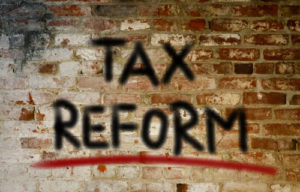Trump vs. Clinton and the Tax Plans We Could End Up With

If someone asked you to explain the differences between the two presidential candidates’ tax plans would you be able give a clear explanation? If you answered “no” most likely you aren’t alone. It’s not uncommon during a presidential election for most voters to be confused at what the candidates are actually promising or proposing. With so much back-and-forth rhetoric, it’s hard to know what each candidate really has in store.
According to Donald Trump, he wants to reduce taxes for everyone in America, especially middle-income Americans. According to numerous reports, Mr. Trump’s plan would reduce the tax system to just three tax brackets, with the top rate dropping from its current mark of 39.6 percent down to 33 percent. He also said that the wealthy would still pay their fair share, but not so much that it hinders the country’s ability to compete.
On the other hand, Hilary Clinton has yet to describe in detail what her tax plans for the middle class would be, or how they would be affected. However, she has made it clear that she wants to raise taxes on the ultra wealthy. Mrs. Clinton has stated that she wants anyone who makes more than a million dollars a year to pay a minimum of 30 percent, whether it’s from income or from capital gains. She would also like anyone who makes more than $5 million to pay an extra 4 percent.
Under Mrs. Clinton’s plan the top 1 percent would end up paying three-fourth’s of the additional taxes being collected, whereas under Mr. Trump’s plan the wealthy would be getting a tax cut of about 5.3 percent. Meantime, both candidates reportedly agree on eliminating the carried interest loophole that offers hedge fund managers a heavily discounted tax rate. Lastly, Mr. Trump wants to eliminate the estate tax completely, while Mrs. Clinton wants to raise it, as well as lower the threshold at which it starts to apply.
http://www.npr.org/2016/09/12/493573601/do-hillary-clinton-and-donald-trumps-tax-proposals-add-up
What Happens to the AMT in 2018
What Happens to the AMT in 2018? As the dust is now settled on the Tax Cuts and Jobs Act, one glaring tax has remained standing, with relatively few changes. The alternative minimum tax or AMT. The first “minimum” tax started with the passing of the Tax Reform Act of 1969. With it was announced…
Is Cryptocurrency Really Secure?
Is Cryptocurrency Really Secure? If you’ve been following the cryptocurrency market then no doubt you’re aware of the volatility of this digital currency. You’ve already seen the massive swings that Bitcoin, Ripple and others have taken over the past several months. Although the big jumps and crashes have made most of the cryptocurrency headlines. There…
How Will New Tax Reform Affect Divorce in the Coming Year?
How Will New Tax Reform Affect Divorce in the Coming Year? No one plans on getting divorced when they decide to tie the knot. Love will conquer all, right? Unfortunately, that’s not how things work and about half of all marriages still end in divorce. Divorce is almost never pleasant and any couple that decides…
Tax Reform Brings New Changes to Section 1202
Tax Reform Brings New Changes to Section 1202 Tax reform is here, love it or hate it. So, with the New Year here that means it’s time to start working under different tax law. To be clear, the 2017 tax year, for which you will file a return this year, is not affected by the…




